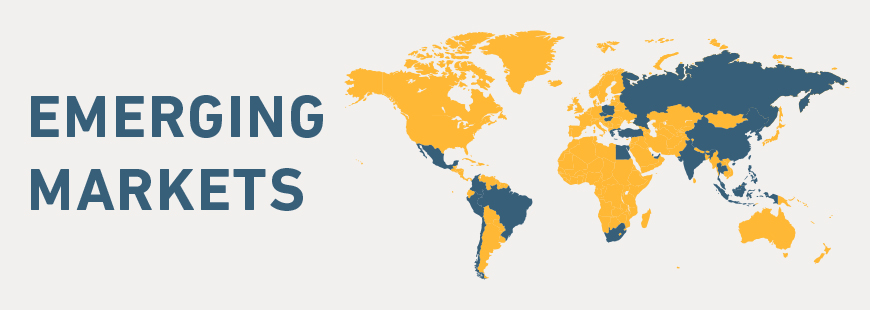"An institutional void. Now, what does that mean? It sounds like a mouthful. A void, of course, is something that's missing, and what I want to draw your attention to is the idea that one of the structural characteristics of every single emerging market is that, as the word suggests, it is emerging. It hasn't yet emerged.

In other words, the market, which is meant to be a set of rules that bring buyers and sellers together, isn't quite there yet. Buyers and sellers continue to have trouble getting together. Typically, the trouble can be reduced to one or two main root causes. One cause has to do with not being able to find the relevant information that they need to find each other. Unless I know who you are as a seller, it's very hard for us to get together and transact. And secondly, it has to come down to things related to trust and contracts. The idea that if I don't have a way of enforcing the implicit or explicit promise that we enter into when we decide to transact, perhaps some ex-post adjudication if there's some dispute that arises and so on, then it's unlikely that I'm going to be willing to trust you and come together with you. When you don't have the rules and institutions and intermediaries in place to allow this thing to happen, that's the situation that I refer to as institutional voids. More simply, 'institutional voids' refers to the absence of intermediaries to efficiently connect buyers and sellers. Although institutional voids are obstructions for effective transactions to take place, they are also opportunities for entrepreneurial interventions.
For example, the online food delivery industry.
Imagine, going back a few years. There was a certain gap between restaurants and their patrons. Unlike today, we were unable to access food from different restaurants from our homes. This 'gap' between sellers [restaurants] and buyers [patrons] is an institutional void. Certain entrepreneurs identified this gap. They chose to fill this institutional void and got down to business. Thus, ventures like Swiggy and Zomato emerged.
Before we delve deeper into how the institutional void impacts the economy, it is imperative to understand what emerging economies are and why they are important? "Emerging economies" is a term coined during the 1980s by Antoine Van Agtmaet replacing the term "third world countries" in order to incentivize firms to invest in developing countries. However later, emerging economies proved to be one of the most pivotal organs of global investments. These countries had both - the potential to drive global economic growth and the appetite for risk, an ideal environment for any investor. These countries are characterized by three elements- income of the citizens, diversity of exports, and the sophistication of the financial systems. As per, August 2020, the IMF recognized 96 countries as emerging economies. Now, addressing the latter half of the question "why are emerging economies important", this is where institutional void comes in. Emerging economies are termed as "transactional arenas" where counterparts (essentially buyers and sellers) can't come together easily due to the absence of specific intermediaries.
These intermediaries are crucial to facilitate transactions and subsequently encourage contracting and exchange. The absence of the said intermediaries (institutional voids) results in great unreliability, making it the kryptonite to future investments. Present institutional voids, make engaging in corruption is easier, and lack of effective political, governance, and regulatory institutions make emerging economies prone to inclining towards an environment of unrest and uncertainty.
Corruption remains one of the biggest barriers to overcoming the institutional void, however, There are a couple of entrepreneurs in Bangalore at a company called Janaagraha, which is initially a nonprofit dedicated to citizen empowerment, that has been pioneering related methods of getting information from citizens, so that people can see where the problems are. That's a quintessential low tech entrepreneurial effort, to begin with, however, there are gaps to fill.